If you're looking for a list of the Best Foods for Gut Health, you're in the right place. As a dietitian, I often get asked what foods people should incorporate into their diet for a healthy digestive system. Here, I share my recommendations for foods to add (and some to avoid) for a healthy gut.

Jump to:
- 1. Foods High in Fiber
- 2. Probiotic Foods
- 3. Prebiotic Foods
- 4. Foods High in Polyphenols
- 5. Foods High in Omega-3 Fatty Acids
- 6. A Variety of the Right Foods
- 7. Water
- Foods to Avoid for a Healthy Gut
- Other things that impact gut health
- In conclusion
- LOOKING FOR MORE NUTRITION EDUCATION?
- CHECK OUT THESE NOURISHING RECIPES
- 💬 Comments
A recent survey from the American Gastroenerological Association showed that 40% of Americans’ daily lives are disrupted by digestive struggles. If you suffer from poor gut health or digestive tract issues, chances are that something is off balance in your gut microbiome, the community of organisms that live in your body, mostly your intestines.
This microbiome is made up of about 100 trillion microbes between your large intestine and small intestine and it includes different types of bacteria, viruses, fungi, and protozoa. Each person's gut microbiome is unique and impacted by many things including genetics, age, gender, diet, and environmental factors.

The gut microbiota has been studied extensively in the past couple of decades and has been shown to play a vital role in human health. For example, the gut assists with digestion including the absorption of important nutrients. And good bacteria in the intestines fight off bad bacteria and contribute to immunity. In fact, 70% of the immune system is found in the gut.
A healthy gut microbiome can also fight inflammation and reduce the risk of chronic diseases like heart disease, type 2 diabetes, and autoimmune disorders. Better gut health can help with weight loss and decrease symptoms of irritable bowel syndrome or inflammatory bowel disease. Lastly, good digestive health supports brain health and mood disorders.
On the flip side, an unhealthy gut can have a detrimental impact on the way you feel. It can decrease your body’s ability to absorb certain nutrients, cause gastrointestinal distress, and lead to inflammation and chronic fatigue.
The good news is that diet and gut health are closely linked, and most people can enhance gut health by incorporating some of the best foods for gut health from this list.
So without further ado, here are the best foods for a healthy gut!

1. Foods High in Fiber
There are two types of dietary fiber, soluble fiber and insoluble fiber. Both are important for gut health.
- Soluble fiber absorbs water and makes a gel that the good bacteria in your body can feed off of. This gel also helps you feel satisfied and full for longer.
- Insoluble fiber passes through the gut largely intact, helps with regular bowel movements, and bulks up stools.
Eat a diet high in each type of fiber to maintain healthy gut bacteria. The best thing is that incorporating high fiber foods into your daily diet has health benefits beyond the gastrointestinal tract.
In a recent meta-analysis study, fiber was shown to decrease LDL cholesterol (low-density lipoprotein cholesterol) and lower high blood pressure. Fiber also supports hormone health and can help regulate blood sugar levels.
To meet your daily needs, aim for 25-30 grams of fiber per day.
Examples of Foods High in Fiber
- Vegetables - add green leafy vegetables such as kale, spinach, or spring mix into your healthy diet. Broccoli, asparagus, green beans, and cauliflower are great options, too. Make Roasted Carrots and Cauliflower or a Beet and Arugula Salad with Goat Cheese to get more high-fiber foods.
- Fruits - aim for fruits that are lower in fructose such as cantaloupe, berries, citrus fruits, kiwi, or bananas. Apples or pears with the skin are also great sources of fiber. Whip up some Air Fryer Cinnamon Apples or Maple Pears when they are in season in the fall. Add them on top of yogurt, another one of the best foods for gut health.
- Avocados - a high-fiber option loaded with potassium. Make a Tuna Salad with Avocado or add avocado slices on top of Veggie-Loaded Turkey Chili!
- Whole grains - go for whole-grain bread or pasta, quinoa, oatmeal, barley, millet, and brown rice. Make a Quinoa Salad with Salmon or a Mediterranean Bowl with Quinoa. Get in your daily oats with 4 Ingredient Breakfast Cookies or delicious Homemade Hemp and Date Granola.
- Legumes - examples include all beans (black beans, cannellini beans, kidney beans, and chickpeas which are also known as garbanzo beans). Legumes also include lentils, edamame (soybeans) and peanuts. Whip up some Homemade Mediterranean Hummus or Roasted Chickpeas for a tasty snack. For dinner, try a cozy Smoky Chickpea Soup or Red Cabbage Soup with Potatoes and White Beans.
- Nuts and seeds - almonds, walnuts, pecans, sunflower seeds, pepitas (pumpkin seeds), flaxseeds, and chia seeds are all high in fiber. Make Chia Pudding or a Healthy Orange and Cranberry Granola with Almonds to get your daily dose of nuts and seeds.
- Corn and popcorn are also high in fiber and good for gut health.

2. Probiotic Foods
Probiotic foods contain live microorganisms and can help boost healthy gut bacteria. A recent systematic review in Nutrients emphasized that there is a link between gut health and various health conditions including cardiovascular disease. Both probiotics and prebiotics can promote heart health by altering gut microbiota and decreasing inflammation in the body.
Two common types of probiotics to look for are Bifidobacterium and Lactobacillus. When opting for foods that contain probiotics, check labels for active, live cultures. These will typically be found in the refrigerated section.
Examples of Foods that Contain Probiotics
- Yogurt - made from milk fermented by probiotics.
- Kefir - fermented drink made from milk and kefir grains.
- Sauerkraut - finely cut fermented raw cabbage.
- Kimchi - salted and fermented vegetables, typically raw cabbage or radish, with added spices, chili, garlic or ginger. A traditional Korean food.
- Miso - a fermented soybean paste used in soups, stews, marinades and more. A staple in Japanese cuisine. If you're using miso in a recipe, be sure to add miso after cooking so the good bacteria aren’t destroyed by the heat.
- Tempeh - fermented soybeans binded into a cake form. Traditional Indonesian food.
- Kombucha - a fermented fizzy drink usually made from tea, sugar, healthy bacteria, and yeast
- Cottage cheese - when it comes to gut health, choose the cottage cheese labeled as made with “live active cultures". Good Culture is a brand I use.
Probiotic supplements are available, but there is not enough evidence to prove they are effective at this time. I suggest getting your probiotics from whole foods if you can!

3. Prebiotic Foods
Prebiotics are next on the list of best foods for gut health. Prebiotics are a type of soluble fiber that feeds the good bacteria in your gut. They are found naturally in many plant-based foods and contribute to maintaining a balance of good bacteria in the digestive tract by keeping the healthy microorganisms in your gut alive.
It's important to get enough of both probiotic-rich foods and prebiotic foods in your daily diet if you want to have a healthy microbiome!
Examples of Foods that Contain Prebiotics
- Asparagus - roast some asparagus to have as a side dish, or chop it up to add on top of salads or buddha bowls.
- Bananas - eat bananas plain or freeze them to add to smoothies! Baking with bananas sweetens things up without having to add sugar. Try making these 4 Ingredient Oatmeal Banana Breakfast Cookies for a healthy option.
- Garlic - garlic has been shown to have several health benefits including supporting gut health. Plus, it adds flavor to dishes! Try roasting a whole head of garlic for prebiotic fiber and loads of flavor in this Sheet Pan Roasted Red Pepper Soup with Gouda recipe.
- Onions - onions are extremely versatile and can be used cooked or raw in recipes.
- Leeks - closely related to onions and garlic, leeks are great for hearty soups or roasted vegetables.
- Cabbage - make some Red Cabbage Soup for plenty of gut-healthy vegetables. Or add raw cabbage to fish tacos or with leafy greens in a salad.
- Oats have a bowl of warm oatmeal or overnight oats with fruit for breakfast.
- Beans and Legumes - to reap the gut health benefits of beans, make a Hearty Turkey Chili or add legumes to soups and salads. Opt for a black bean burger or add them to tacos and fajitas.
- Soybeans - roasted edamame (young soybeans) are on the list of my favorite snack foods! Edamame also goes great with Crispy Air Fryer Salmon in a sushi style bowl.
- Almonds - snack on almonds or make baked goods using almond flour.
- Chicory Root - chicory root is a root containing a prebiotic called inulin. It is a common ingredient in prebiotic soft drinks like Olipop and Poppi brands.
- Jerusalem Artichokes - a root vegetable that can be eaten raw or cooked.

4. Foods High in Polyphenols
Polyphenols are nutrients found in a wide variety of foods and have an antioxidant and anti-inflammatory impact which is important for gut health. The most common sources of polyphenols are fruits, vegetables, spices and herbs, black tea, and coffee.
A recent study from Food Research International pointed out that the fermentation of polyphenols in the colon leads to a metabolite that is even more impactful than the polyphenol itself.
These metabolites can help to protect the gut barrier, which is important for the absorption of nutrients. They can also decrease inflammation in the body, a risk factor for many chronic illnesses.
Examples of Foods High in Polyphenols
- Berries - including blueberries, raspberries, blackberries, and strawberries.
- Plums
- Cherries
- Apples
- Vegetables - including artichokes, red onion, and spinach.
- Nuts - including chestnuts, hazelnuts, pecans, and almonds.
- Flax Seeds
- Black Olives - green olives also contain polyphenols but slightly less than black olives.
- Spices - including turmeric, cumin, cloves, cinnamon, nutmeg, ginger, cumin, peppermint, star anise, oregano, sage, rosemary, and thyme.
- Tea and Coffee
- Dark Chocolate

5. Foods High in Omega-3 Fatty Acids
Foods that are high in Omega-3 fatty acids can help decrease inflammation in the body by reducing substances that cause inflammation in the first place. A decrease in inflammation can ease digestive symptoms.
Omega-3s are also an important part of cell membranes and contribute to the health of immune cells in the gut.
Examples of Foods High in Omega-3 Fatty Acids and Other Healthy Fats
- Fish and other seafood - salmon, mackerel, herring, tuna, oysters, anchovies and sardines are all good sources of healthy Omega-3s. Make Air Fryer Salmon Cubes that only take 10 minutes to cook or try a Tuna Salad without Mayo made with creamy avocado.
- Nuts - walnuts are particularly high in Omega-3s.
- Seeds - chia seeds, flax seeds, and hemp seeds are also sources of healthy fats. Make Hemp Granola or Chia Pudding to get more seeds in your diet!
- Olive Oil - while olive oil contains little Omega-3, it does contain a high amount of a common Omega-9 fatty acid called oleic acid, another good option to add for a healthy digestive system. Olive oil is a staple of the Mediterranean diet.

6. A Variety of the Right Foods
The easiest way to maintain a healthy gut microbiome is to eat a variety of the right foods. Getting a variety of probiotics, fermented food, prebiotics, polyphenols, healthy fats, and dietary fiber will ensure the growth of good bacteria in your gut and lead to better health overall.
When you can, incorporate two of the best foods for gut health into one meal or snack. For example, add blueberries on top of yogurt, make a bowl of oatmeal with banana slices, or enjoy a fillet of salmon with asparagus on the side.
7. Water
Last but not least, be sure to drink plenty of water to support your gut health! As you eat more foods with high fiber content, staying hydrated can help you avoid constipation and is good for all your body systems to function optimally.
If you have a hard time drinking plain water, try one of these easy ideas to naturally add flavor to water to make it taste better.

Foods to Avoid for a Healthy Gut
In addition to eating more of the right foods for gut health, it's equally as important to avoid foods that have a negative effect on your gut. Below are foods to avoid if you are focusing on increasing your good gut bacteria for improved digestive health!
1. Too Many Ultra-Processed Foods
While you don’t need to completely avoid processed foods, try to limit them or choose the better-for-you or healthier option made with natural ingredients when possible.
2. Artificial sweeteners
Especially sucralose, aspartame, or saccharin which have been shown to disrupt the balance and diversity of gut microbiota.
3. Refined sugar
High sugar intake can hurt your gut bacteria. This has also been shown to lead to inflammation in the body.
The American Heart Association recommends eating no more than 6 teaspoon or 25 grams of sugar per day for women and 9 teaspoon or 38 grams of sugar per day for men.
Refined sugar includes table sugar, high fructose corn syrup, and sugar found in many processed foods. Natural sugar is found in fruits and milk/milk products.
Since natural sugars are found in foods that have fiber or protein, they are a healthier option if you are looking for something sweet.
4. Alcohol
Alcohol has been associated with a negative impact on the gut microbiota. When it comes to gut health foods, avoid alcohol as much as possible. Living alcohol free can have many health benefits, even if it's only cutting back instead of abstaining altogether.
5. Acidic Foods
If you have noticed you have signs of an unhealthy gut like diarrhea, bloating, or acid reflux, try to steer clear of foods and drinks that are high in acid. This includes tomato sauce and citrus foods such as oranges, lemons, and limes. It also includes coffee, fizzy drinks, and some salad dressings.

Other things that impact gut health
Lack of sleep has a negative effect on gut health. Aim for 7-8 hours of sleep per night. You can also try to take naps during the day if your schedule allows.
High stress levels, acute or chronic, also impact gut health. Try to use stress management techniques such as gratitude, journaling, or taking a walk outside.
In conclusion
Having a healthy gut impacts many other parts of your overall health including immune health, mental health, and even your risk of obesity and chronic illness.
Diet and gut health are closely related and changing what you eat can lead to a healthier gut. The best foods for gut health including those high in fiber, probiotics, prebiotics, phytochemicals, and Omega-3s.
It really comes down to the basics: eat a variety of nutrient-dense foods that are mostly plants, drink enough water, aim to get more sleep, and find ways to reduce and manage stress.
I hope you enjoyed this article and learned something new! If so, I would love to connect. Please leave me a comment below or find me on Instagram....I LOVE knowing there’s people out there reading my articles. 🙂 IG: @mallorythedietitian
References: American Gastroenterological Association, Frontiers in Cellular and Infection Microbiology, Frontiers in Nutrition, Food Research International, Healthline, BMJ, Nutrients, Gut Microbiota for Health, Nutrients (sugar), American Heart Association, City of Hope, Hopkins Medicine, Real Simple, Nutrients (heart disease)
LOOKING FOR MORE NUTRITION EDUCATION?
Here are some of my educational posts you may enjoy:




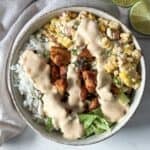

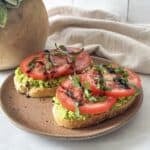
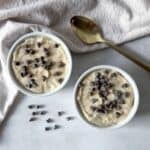

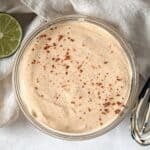
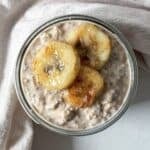
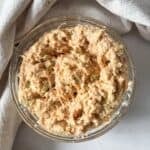



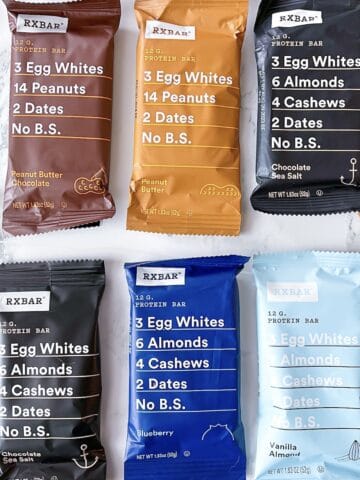
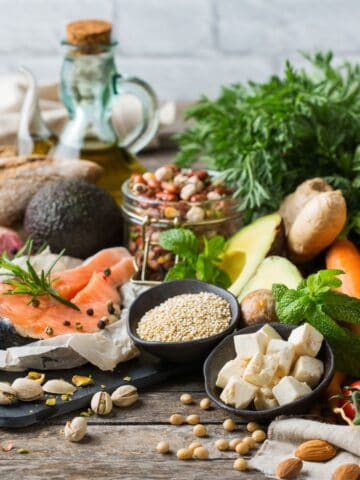
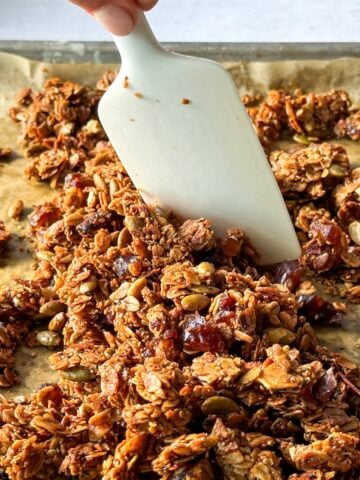

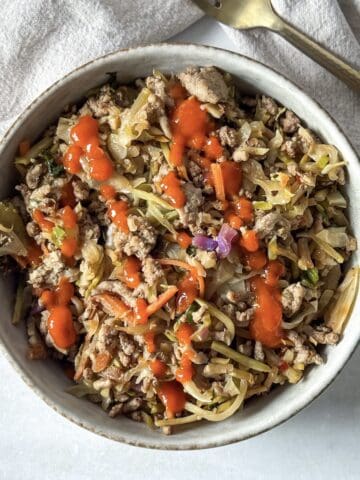
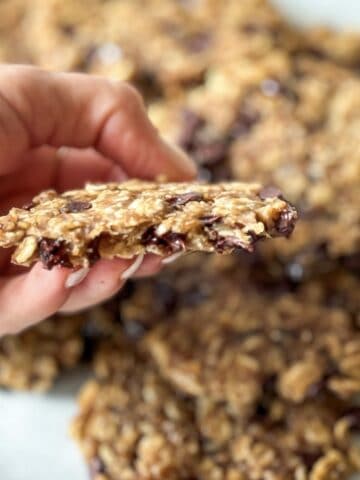
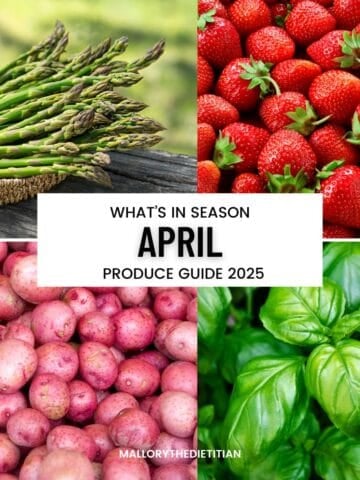
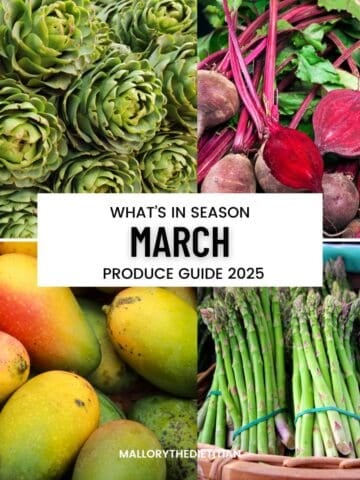
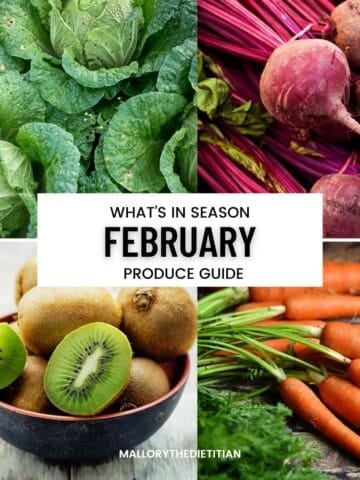
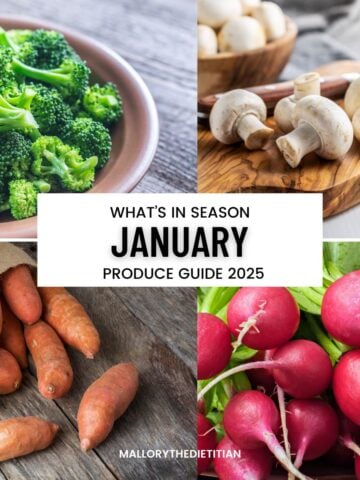
Comments
No Comments